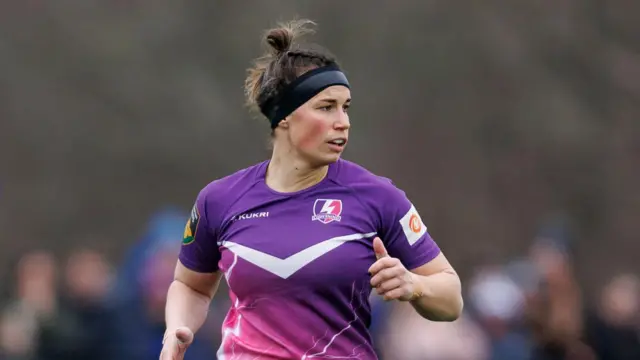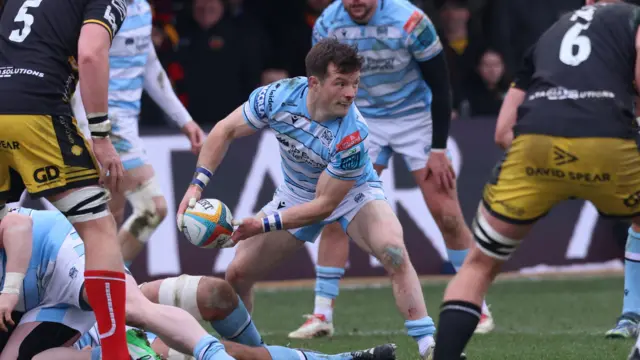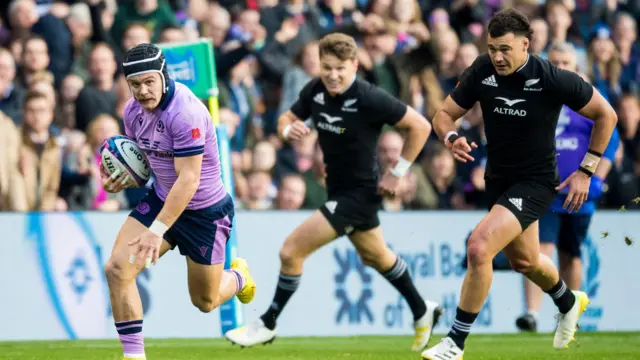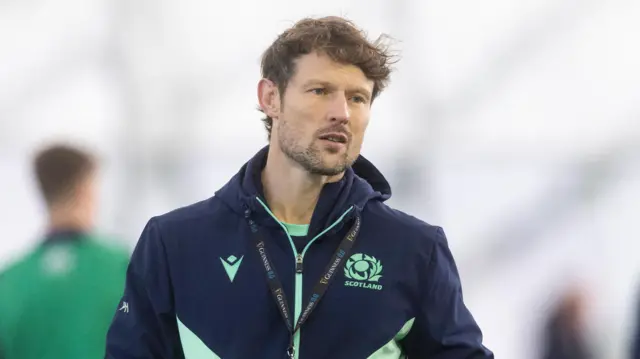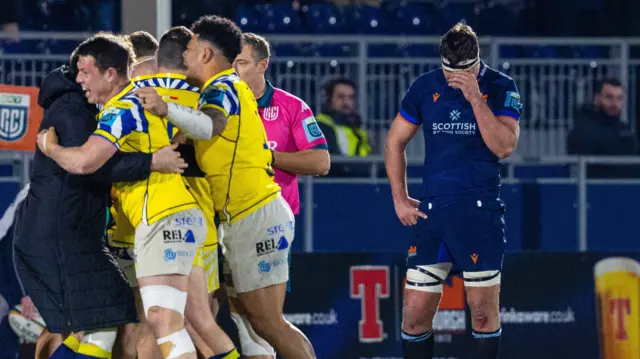Townsend on Russell selection, Graham absence and England threatpublished at 17:39 GMT 20 February
Andy Burke
BBC Sport Scotland Senior Reporter
 Image source, SNS
Image source, SNSScotland head coach Gregor Townsend has been speaking to the media ahead of Scotland's Six Nations match against England at Twickenham on Saturday.
Here's the best of what Townsend had to say:
The defeat to Ireland in round two, rather than any history around the Calcutta Cup, is what has focused the players' minds this week as they want to "improve from our game against Ireland."
Pleased to have Finn Russell fit and available. Calcutta Cup matches have brought out the best in him. "Finn loves it, the competitive side of it," he says, adding that Russell revels in the close, competitive games as well, saying "he's enjoyed those games that have gone to the wire as well"
Darcy Graham was symptom-free two days on from his concussion against Ireland but was left out of the squad for England because "we felt it wasn't right to bring him into full contact this week", adding that Saturday's opponents will "be very confident in where the game is".
England have threats "all over the place", especially the "very dangerous" duo of Fin Smith and Marcus Smith, but knows there are threats all over the field, "but they've got some really good players outside of that as well," he adds.
Scotland will bring the necessary passion against England, but must also "be calm amongst the chaos" at Twickenham.




